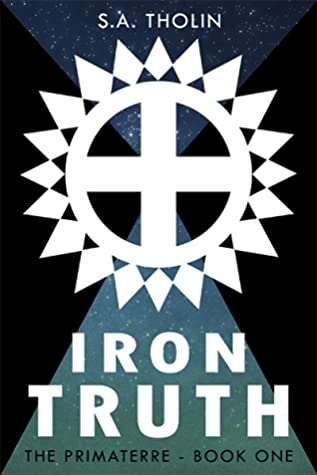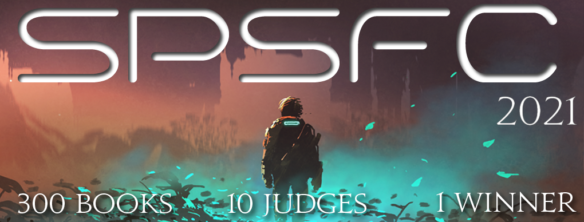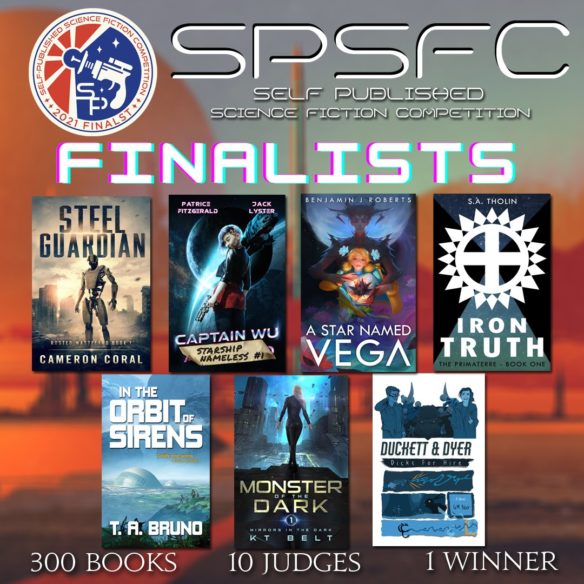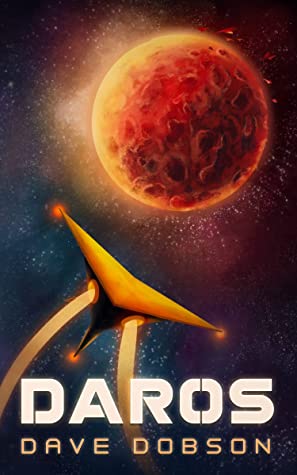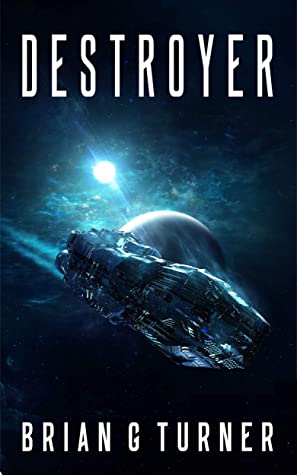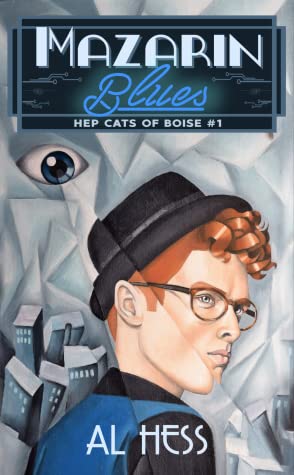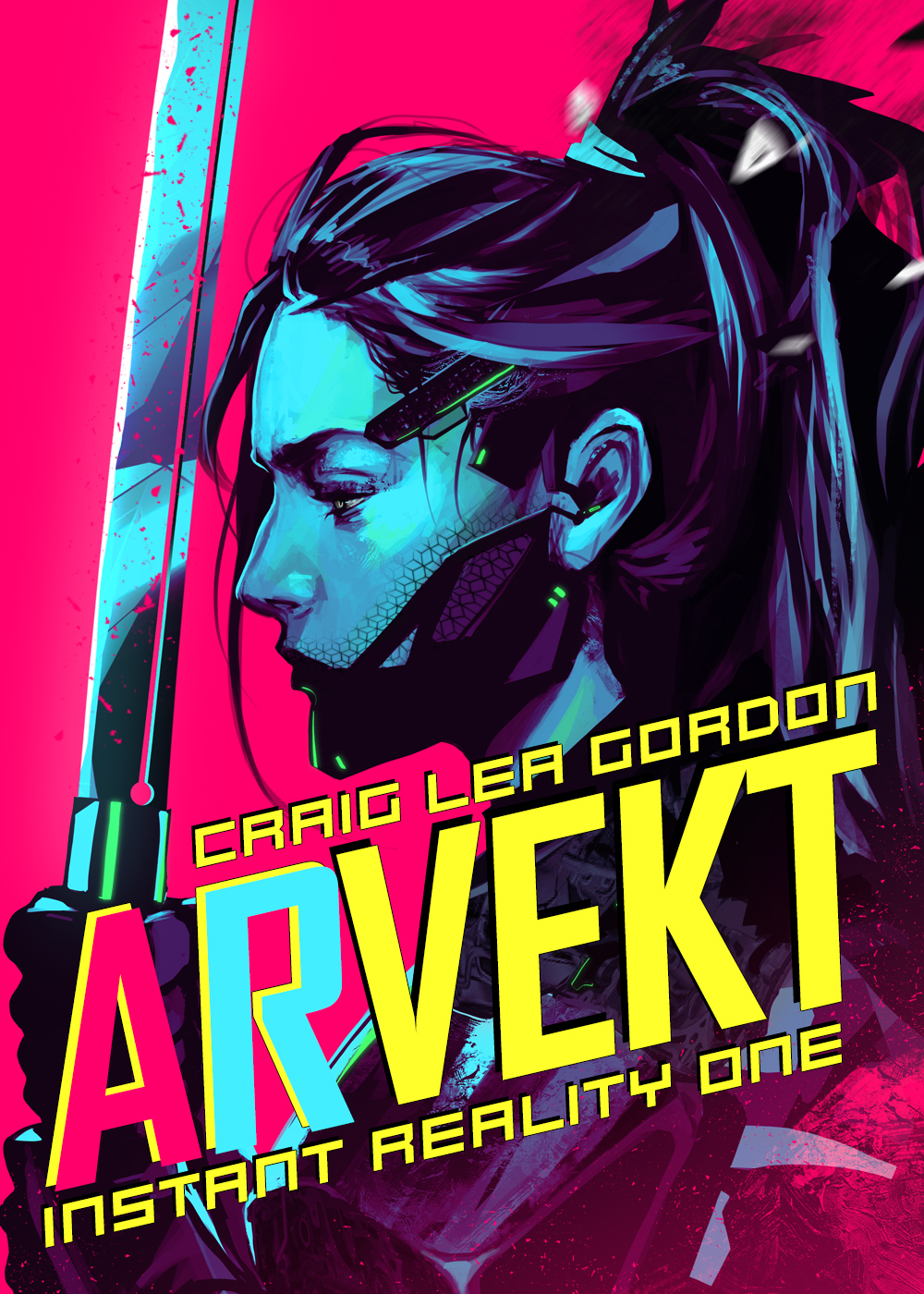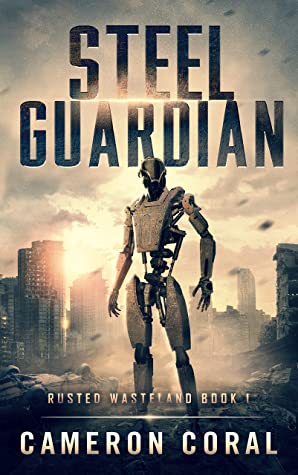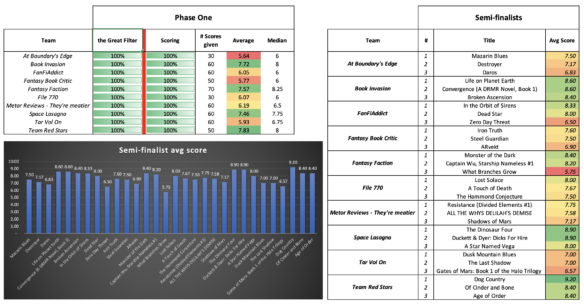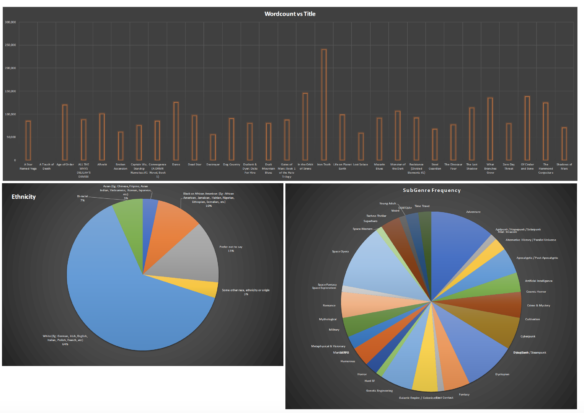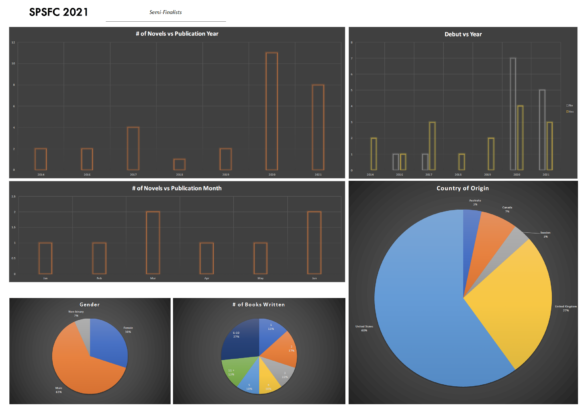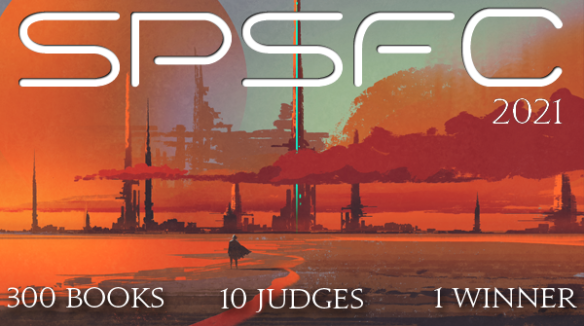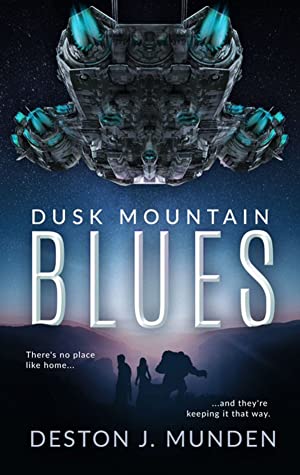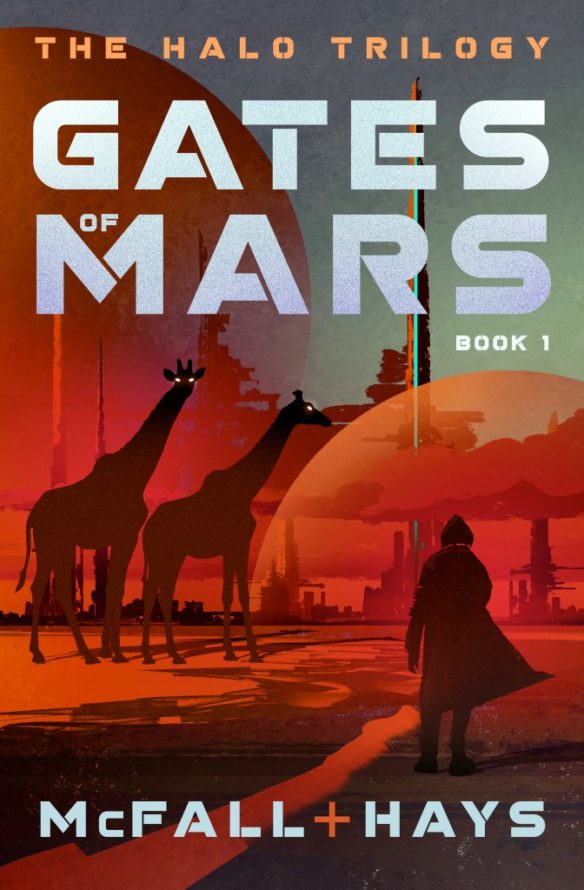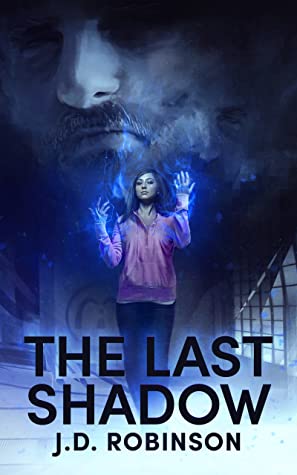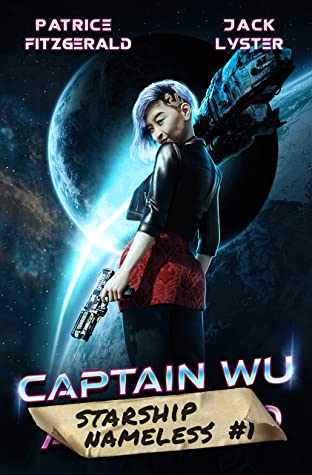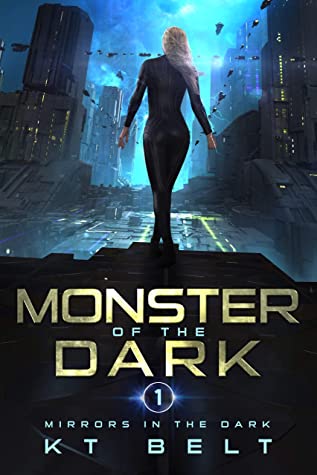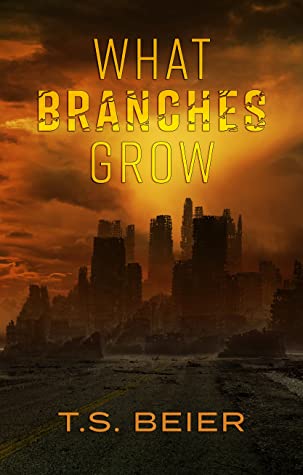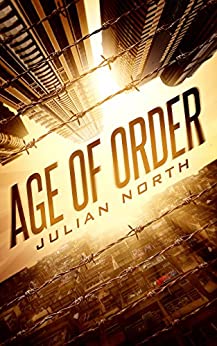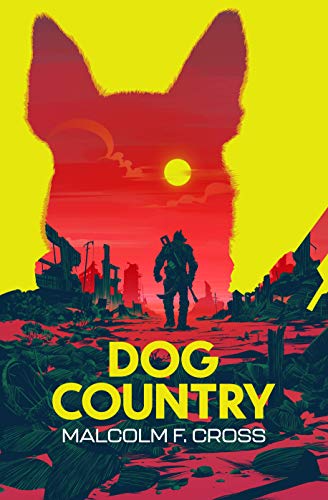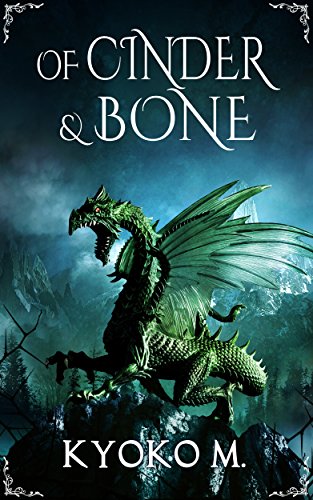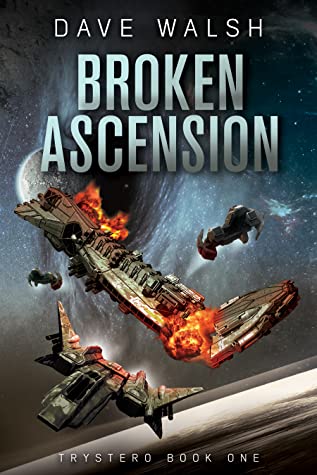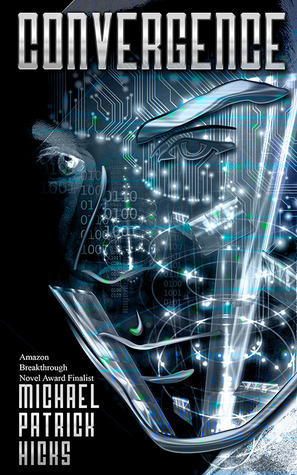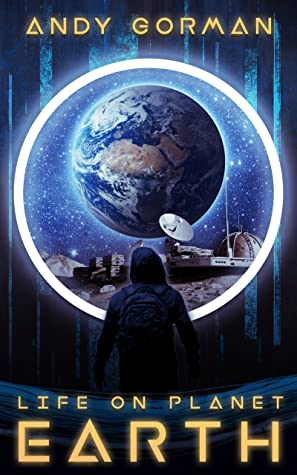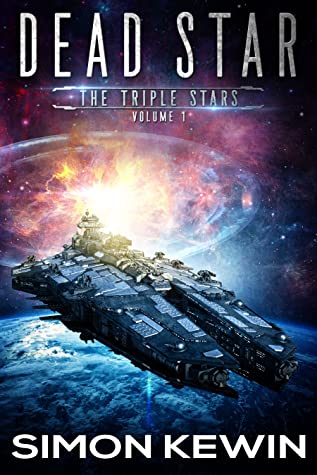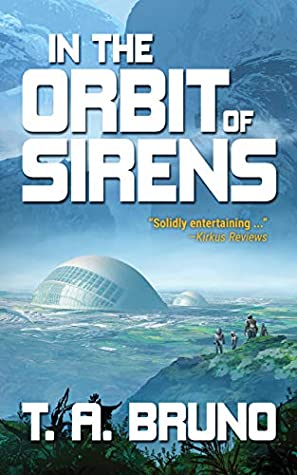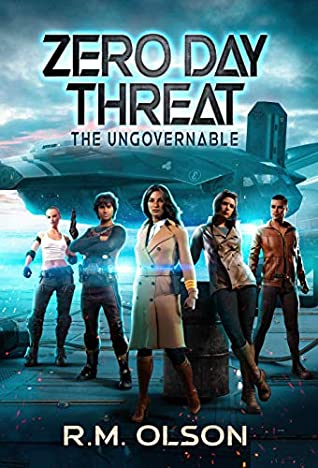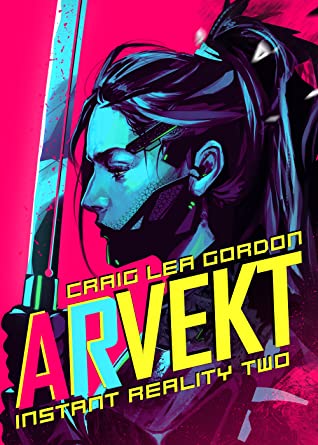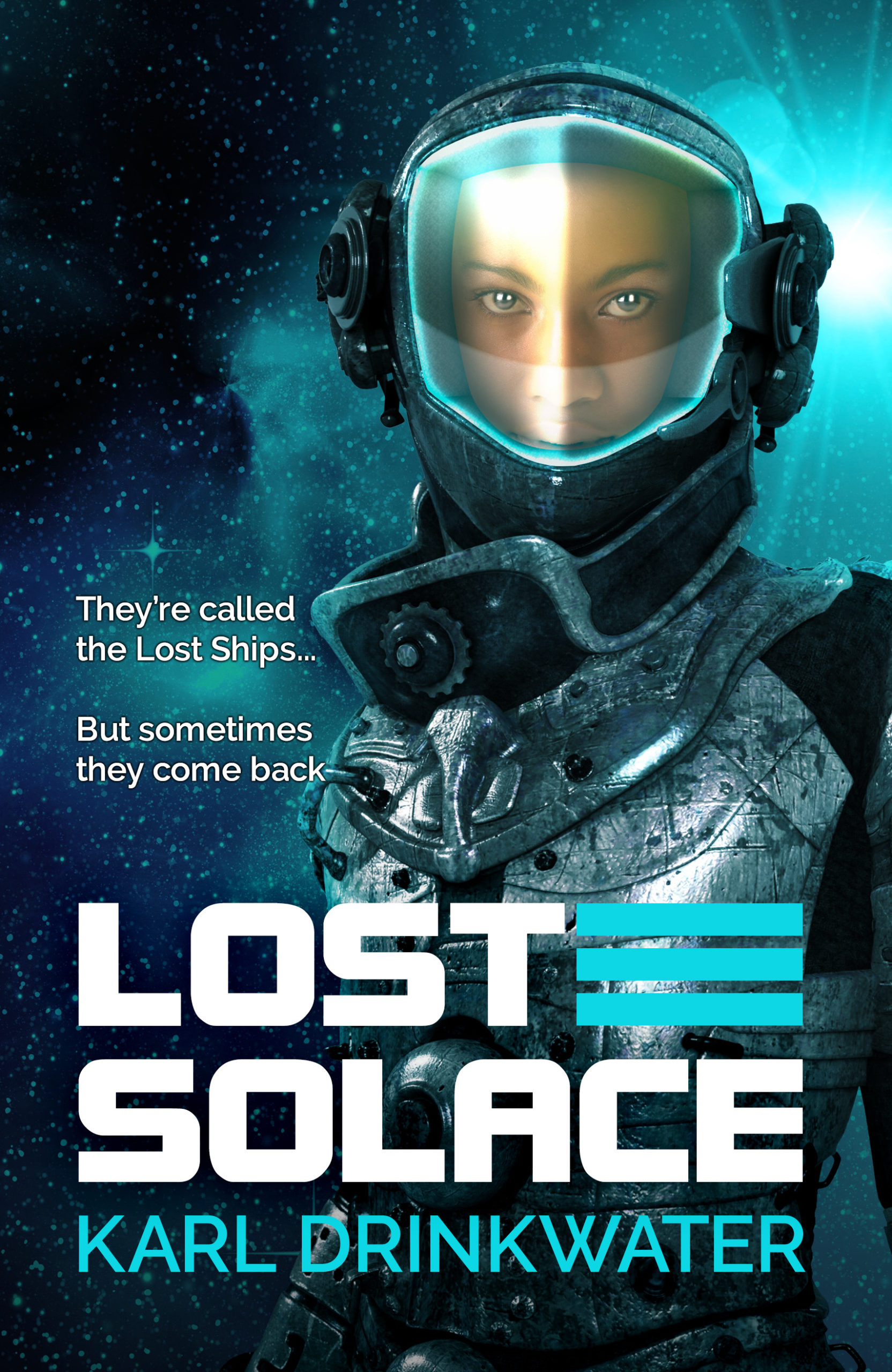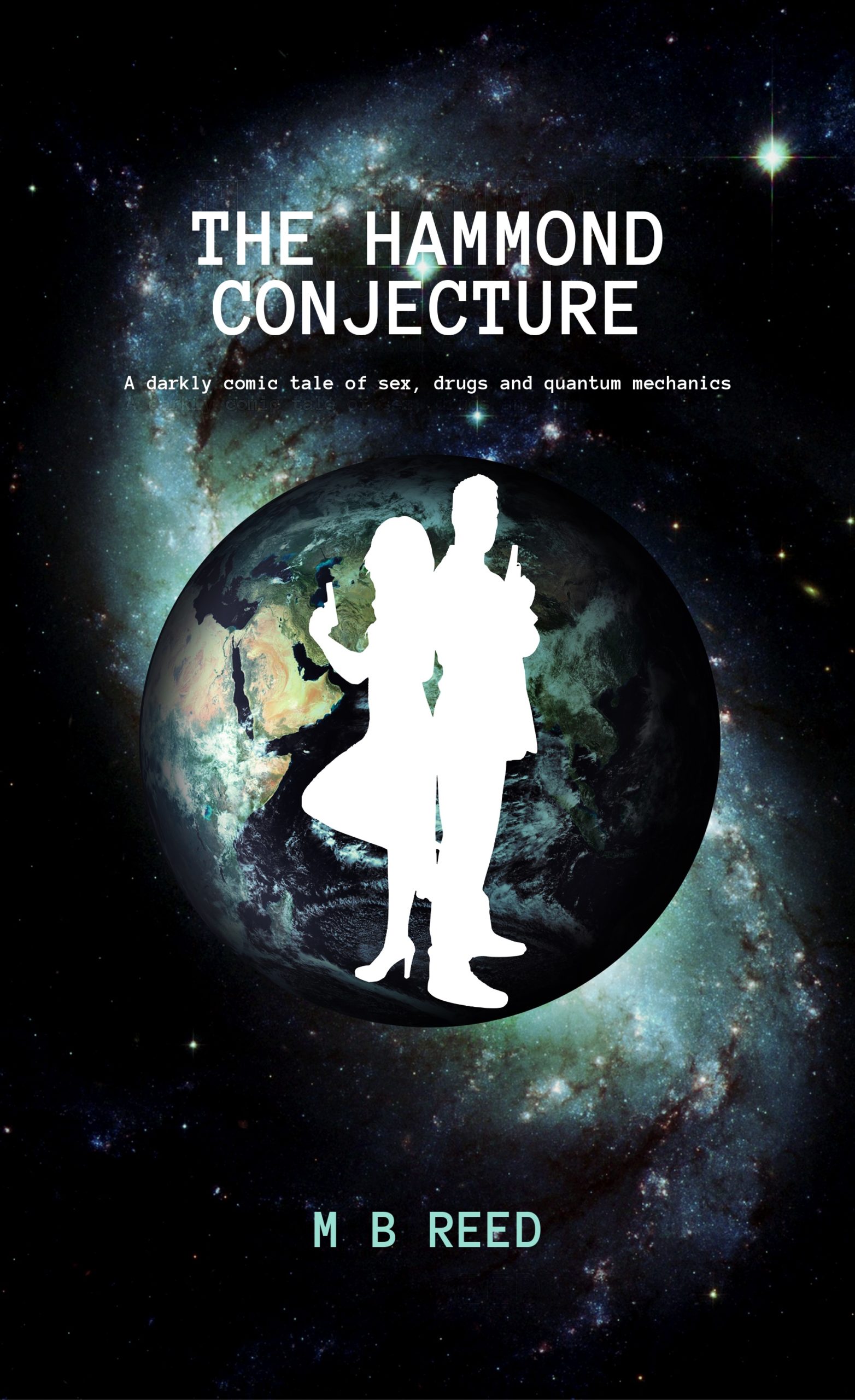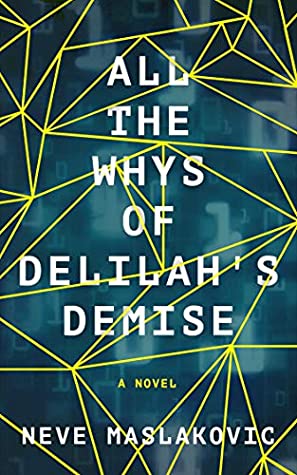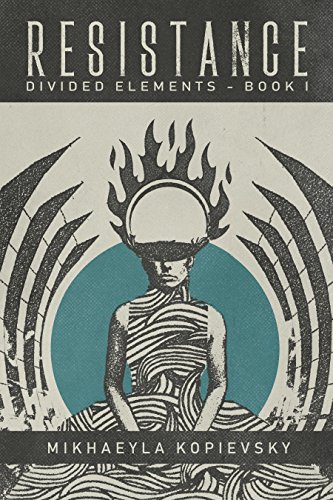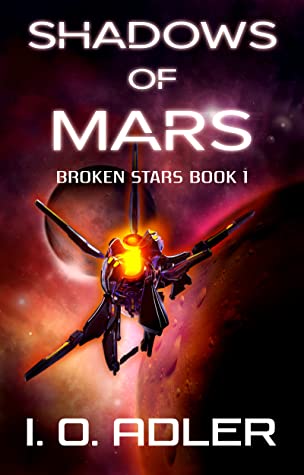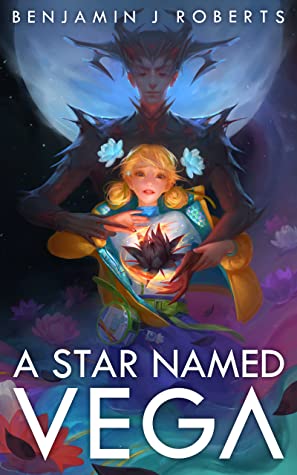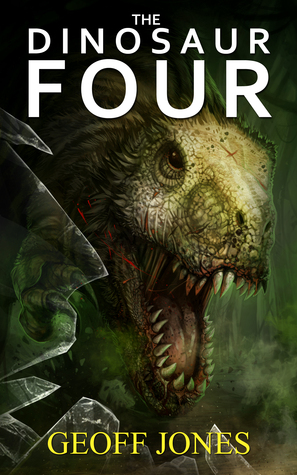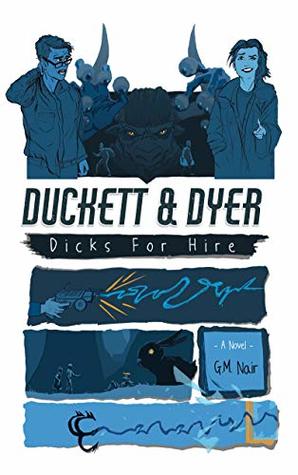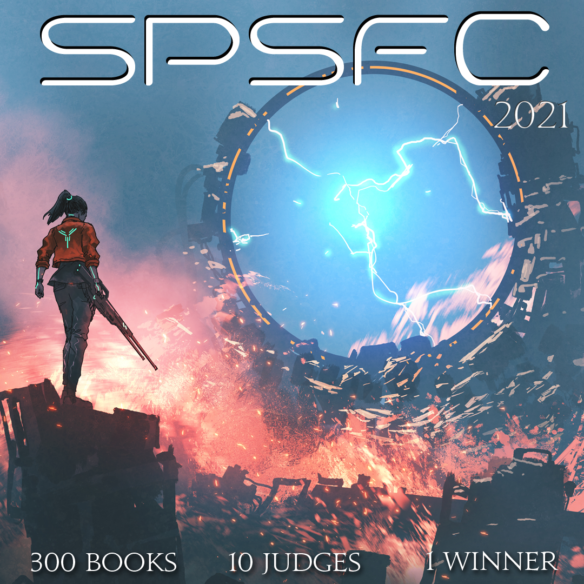By Mike Glyer: The Self-Published Science Fiction Competition, created by Hugh Howey and Duncan Swan, is modeled after Mark Lawrence’s Self-Published Fantasy Blog-Off.
Ten teams of book bloggers – including Team File 770 – will soon finish winnowing through our share of the 300 entries to decide which ones should make it to the next stage.
Team members are reading the first 20% of each of their 30 books, and recommending the 10 we think the team should read in full. The 10 books that collectively get the most “yes” votes advance to a second stage where they will be read in full by the team and scored.
Based on reading 20% of Team File 770’s assigned books, I found there are actually 12 I’d say yes to – so I am going to need to cut two more before I finalize this list.
For purposes of this article, I have organized some books with common characteristics into categories – the contest itself doesn’t do so. And my comments are preceded by a condensed version of the book’s self-description, so you can see what the author is trying to do.
INSIDE THE VIDEO GAME

Alterlife by Matt Moss

Condition Evolution by Kevin Sinclair

The Dark Realm by Anthea Sharp
I tend not to like stories about people being put inside a computer game, so I was pleasantly surprised that I really liked one of the team’s three books with that premise. In these kinds of stories, unlike actual games, a lot of info has to be dropped in the lap of the point-of-view character so the story doesn’t stall. Therefore, the game play doesn’t feel genuine. (As a game player I may endure being repeatedly killed and starting over as I learn a game, but I don’t want to read that.)
- Alterlife by Matt Moss (N) No, that’s enough for me
John Crussel hears of how he can make money in a virtual reality video game called Alterlife. But being a hotshot new guy that seems to have all the luck draws the attention of some dangerous people in Alterlife. Through a series of unfortunate events, John becomes the first to contract a deadly virus – in real life. The virus was designed to kill players outside of the game. And John was targeted to be a carrier. Can he rid himself of the virus before time runs out? All John Crussel wanted was to make some easy money. He thought Alterlife was just a game…
This story progresses both inside and outside the game. The prose is well-enough written, but after 20% I wasn’t engaged by a character who was willing to do anything and repeatedly deceives people he is supposed to care about.
- Condition Evolution by Kevin Sinclair (Y) Yes, I want to read more
When Shaun’s life continues to go from bad to worse, he is offered the chance to escape into an epic game world. One with the power to repair his mind and body while he lives out his wildest dreams. What could possibly go wrong? It turns out fighting monsters and obesity is tough wherever you are! Then there’s the unrequited love. Weren’t the women supposed to fall head over heels with the hero? Not in Anatoli, a brutal and unforgiving land on the brink of apocalypse. If Shaun can survive this very real experience, he might just get to be a hero back in the real world!
Despite being an adventure inside a computer game the author hooked me – I had to learn the fates of his two main characters. Never mind 20% — I read the whole novel right away. It was pretty entertaining.
- The Dark Realm by Anthea Sharp (N) No, that’s enough for me
What if an immersive game was a gateway to the treacherous Faerie Realm? Feyland is the most immersive sim-game ever designed, and Jennet Carter is the first to play the prototype. But she doesn’t suspect the virtual world is close enough to touch — or that she’ll be battling for her life against the Dark Queen of the faeries. …Together, Jennet and Tam enter the Dark Realm of Feyland, only to discover that the entire human world is in danger. Pushed to the limit of their abilities, they must defeat the Dark Queen… before it’s too late.
Another inside-the-computer-game story, but with two intriguing characters. This feels like a YA novel, and while there are some YA series I thoroughly enjoy, I decided this one wasn’t compelling enough to make the cut for the contest.
FUTURE INFORMATION SYSTEM CONSPIRACIES (POST-INTERNET)

Grandfather Anonymous by Anthony W. Eichenlaub

In My Memory Locked by Jim Nelson

Into Neon: A Cyberpunk Saga by Matthew A. Goodwin

Harvested by Anthony O’Brien
Four of the team’s books revolve around information technology of the not-too-distant future.
- Grandfather Anonymous by Anthony Eichenlaub (Y) Yes, I want to read more
Elderly, unarmed, and extremely dangerous. Ajay Andersen was the best hacker the NSA had ever hired. Retirement hasn’t slowed him down one bit, thank you very much. When his estranged daughter shows up on his doorstep with his two granddaughters, Ajay will do anything to keep them safe. He’ll hack biotech corporations and criminal enterprises alike. He’ll brave the woods of Minnesota. Nobody after his girls will be safe, but the more he digs, the more he dredges up the shadows of his own dangerous past. He only needs to know one thing: What makes his granddaughters so darn dangerous?
This is a well-written page-turner. The way the story opens made me think of some John Sandford and Lee Child thrillers that begin from the villain’s POV – except this “villain” is the protagonist. At least we know he’s a very ruthless fellow!
- In My Memory Locked by Jim Nelson (Y) Yes, I want to read more
They hired a cyberpunk detective to recover their stolen memories. They didn’t know his twisted past is the key to the crime. Security expert C.F. Naroy’s investigation across a desolate San Francisco uncovers blackmail, political intrigue, family secrets, and a few dead bodies. Meanwhile, he has to keep tabs on a beautiful young programmer addicted to Blue Pharje, a substance used to forget your past in a world where nothing is forgotten. He also learns the hard way that the stolen data is so explosive, people are willing to kill for it. Then Naroy discovers his own painful past is the key to the entire affair. He must choose between solving the crime…or burying it for good.
This noir-style mystery is set in climate-changed San Francisco of near-future. I didn’t mind the indulgent descriptions of the vegetation-choked cityscape. It’s a murder mystery with cryptic, Hammett-esque clients.
- Into Neon: A Cyberpunk Saga by Matthew A. Goodwin (N) No, that’s enough for me
Orphaned and alone, Moss is happy to have found a place in the world. But his humdrum working routines take a terrifying turn when a mysterious woman breaks into his apartment and hands him a data chip from his dead parents. Suddenly hearing messages revealing his benevolent employer has a far darker side, he braves the dangerous megacity streets in search of the truth. Surrounded by outcasts and criminals and running on instinct, Moss stumbles onto a rebel group intent on exposing their corrupt oppressors. And though he fears for his life when his old boss has put a price on his head, the naïve man believes the key to taking down the enemy may lie inside the high-tech device… and his own cerebral cortex. Will Moss’s attempt to fight the power cause him to terminally short circuit?
Like The Matrix or Keith Laumer’s short story “Cocoon,” a character finds out his cocooned life isn’t “real”. But 20% into the book he’s only just starting to break out. I was willing to stop reading.
- Harvested by Anthony O’Brien (N) No, that’s enough for me
The year is 3716. Earth’s resources are depleted. Humanity has been forced into a 21st century computer simulation, controlled by Ikelos, AI at its most terrifying. A seedbank lost to time in the frozen wastelands of a Norwegian island is mankind’s last hope for survival. Jon Stone, a New York physicist, has been extracted out of the simulation by another scientist, Tori. With no memory of Tori or his past life, Jon must trust her as they re-enter the simulation to locate, somewhere in this dangerous, illusionary world, the island’s co-ordinates. Can they avoid the traps in the matrix, find what they seek, and return to the 38th century in time to save humanity before the final extinction?
After an initial flurry of action, the rest of the opening 20% consists of info dumps. Not enough reason to recommend it.
REBELLING AGAINST THE REPRESSIVE REGIME

A Touch of Death by Rebecca Crunden

Aurora Ascending by Dennis Ideue

Cranax Outbreak by Candice Lim

Don’t Speak by Vanessa Heath
The world has no shortage of oppressive governments, and there are many successful sf stories about getting rid of them (The Moon Is A Harsh Mistress) or failing to (1984). Unfortunately, I couldn’t upvote any of the four examples assigned to our team.
- A Touch of Death by Rebecca Crunden (N) No, that’s enough for me
The last of humanity live inside the walls of the totalitarian Kingdom of Cutta. The rich live in Anais, the capital city of Cutta, sheltered from the famine and disease which ravage the rest of the Kingdom. It is only by the will of the King that Nate Anteros, son of the King’s favourite, is spared from the gallows after openly dissenting. But when he’s released from prison, Nate disappears. Catherine Taenia has spent her entire life comfortable and content. The daughter of the King’s Hangman and in love with Thom, Nate’s younger brother, her life has always been easy, ordered and comfortable. Two years pass without a word, and then one night Nate returns. But things with Nate are never simple, and when one wrong move turns their lives upside down, the only thing left to do is run where the King’s guards cannot find them – the Outlands. Those wild, untamed lands which stretch around the great walls of the Kingdom, filled with mutants and rabids.
The first 20% seems to dwell a lot on descriptions of the physical injuries sustained by the characters in their flight, which puts the brakes on an already slow-moving story. Didn’t make my cut.
- Aurora Ascending: Armageddon is only the Beginning by Dennis Ideue (N) No, that’s enough for me
Follow Elliot Greyjoy’s adventures he gathers a force to challenge the invincible fleet surrounding Aether. Vowing to destroy the Emperor that shattered his homeworld, he’s joined by a beautiful telepath, a smartass computer, and an elite team of Terran military forces. First contact, planetary occupation, and evacuation are merely the first trials he must overcome before his quest even begins. Armageddon is only the beginning of the adventure.
This story is about freedom fighters who oppose an alien empire that wants to overwhelm Earth. Although the blurb names a particular protagonist, it takes awhile to get to him. First come a series of scenes each featuring a different male character who emphasizes strict military discipline — except when it might keep him from doing whatever he wants — on a team with a woman who wants to sleep with the commander (him), and does. Although there can be successful stories about a hero who is a puritan, or is a hypocrite, or is simply amoral, I wasn’t able to enjoy a story where nobody around these characters noticed the inconsistency.
- Cranax Outbreak by Candice Lim (N) No, that’s enough for me
You can run from the zombies but you can’t run from fate. In the alternate 2020, Asia Nova is governed by a group of elite scientists called the Community. The wrestle for power in the Community thrusts Roxy in the path of the covert party who has unleashed the deadly Cranax virus and abducted her high-profile mentor, Dr. Jane Hershey, who has the only known cure. The Infecteds aren’t the only thing Roxy has to run from. With the masterminds behind Project Cranax hot on her heels, Roxy finds herself in an accidental quest to rescue Hershey.
I found the book plagued by two-dimensional, unbelievable characters in an absurd predicament that didn’t make nearly as much sense as the blurb. Not recommended.
- Don’t Speak by Vanessa Heath (N) No, that’s enough for me
Speech is illegal. Punishable by death. The doctor took your voice away mere minutes after you were born. Now, over two hundred years after the “Silent Night” bill, people go about their lives, flicking and tapping away at their communication pads while carefully choosing each word so they don’t end up like the ones with missing fingers or entire hands. For years, Rose was the same as everyone around her – nervous when Civility Agents requested a meeting or terrified when Voice Agents rounded people up for interrogation. But, when everything she holds dear is ripped away from her, she has no choice but to run and join the one group she was taught to fear… the Rebellion.
The major premise of why voice speech is surgically prevented from birth is completely undermined by a world of characters who find ways to communicate their words, emotions, and values without it. Therefore, the story is nonsensical.
MILITARY SF

Godeena by Stjepan Varesevac Cobets

Where Weavers Daire by R. K. Bentley
- Godeena by Stjepan Varesevac Cobets (Y) Yes, I want to read more
Henry Broncon is a Cyber, a type of soldier modified with cybernetics, built to fight in treacherous terrains on far-flung planets and battling alien monsters for their resources. As the only survivor of a brutal war against rebellions Ansker soldier on the planet Morad, the winning terrestrial colonies receive ownership of a system called Naude, comprised of various planets including Godeena. Scientists sent to research the huge, completely preserved but uninhabited city disappear and Special Forces sent to recover them also come up missing. It’s up to Broncon to gather a unit tough enough to withstand the harsh conditions. He takes the worst inmates from an inescapable prison on a poisonous planet Had, to investigate what is happening on Godeena. The unusual team of criminals, led by Broncon, discover what terrors await them there.
It’s not as close to The Dirty Dozen as the blurb might lead you to believe. However, up to the 20% mark it’s a well-written military sf story, and I’d be willing to read more.
- Where Weavers Daire by R. K. Bentley (Y) Yes, I want to read more
Ten years after the last war, on the desert world of Stuk’s Hollow, the New Year celebrations are in full swing with gatherings of Houses; the technological, the magical and the mortal. Invisible fingers pull the living, the dead and the banished towards the festivities. It’s just a question of who’s going to reach the festivities first and what secrets they will uncover. The Fallen Techno Mage. The Forgotten Weaver. The Lost Leader. The bloodthirsty evil.
This story is set in a universe where technology and magic are somehow integrated. As we know, it’s not just having that idea, it’s what you do with it. Here’s a fast-paced space adventure, people to rescue, a mystery to unravel, and plenty of interesting characters at work – possibly too many. They come in a flood, and it’s a challenge to keep track of their allegiances. But then, the characters themselves have trouble keeping track, so why should the reader have it any easier? 20% is just an appetizer. I’m ready to ride along for awhile.
COLONY SHIPS

The Voyage of the White Cloud by M. Darusha Wehm

Dusk by Ashanti Luke
- The Voyage of the White Cloud by M. Darusha Wehm (N) No, that’s enough for me
The White Cloud is the most audacious experiment the human species has ever undertaken—to search for a new Earth. The ship and its crew exist for a solitary purpose—to reach a distant planet and establish a colony. However, the vast majority of people undertaking this journey will not live to see its result, nor were they part of the decision-making process to leave. A novel-in-stories, following the many generations who make the journey, The Voyage of the White Cloud asks how you can find meaning as a slave to destiny, a mere stepping-stone in history. These are the stories of the most ordinary people on a most extraordinary journey.
A series of scenes play out aboard a generation ship that will take many lifetimes to arrive. They amount to character sketches, and I found I didn’t get invested in the characters like I do with a Becky Chambers book. So for me, this book didn’t make the cut.
- Dusk by Ashanti Luke (N) No, that’s enough for me
With the Earth overpopulated and polluted, a group of twenty premier scientists must depart on a mission to explore Asha, a distant, uninhabited planet that may offer solutions to humanity’s burgeoning problems.But when they arrive at Asha, the scientists are brusquely greeted by a mysterious human military force that imprisons them with no explanation. They find that during their journey, a faster ship not only delivered humans to Asha, but those humans defeated Earth in an interplanetary civil war. With this war and the discovery of an inexplicable link to mankind’s past, the team finds Asha holds more mysteries than answers. Astrophysicist Cyrus Chamberlain is among those who left behind their old lives and risked everything on this journey. Unfortunately for Dr. Chamberlain, he finds that even if he survives the many challenges this new world holds for him, he may have already lost more than he ever imagined.
Scientists on their way to study an alien world have time for many long, deep and real conversations, and to form cliques. But 20% of the way into the book, talking is all that’s happened. The major crisis disclosed in the blurb is still offstage. The highlight has been flashbacks to one scientist’s talks with his young son – though even these are just one more technique to deliver another infodump info to the reader. An infodump which the reader had nowhere to apply, suggesting the story hasn’t started in the right place. Not recommended.
SPACE OPERA

Homecoming by R. D. Meyer

No Easy Road by Greg Camp

Shakedowners by Justin Woolley

The StarMaster’s Son by Gibson Morales

Piercing The Celestial Ocean by Kip Koelsch
- Homecoming by Russell D. Meyer (N) No, that’s enough for me
Earth. The mere name has had an almost talisman-like pull on the human race since we were driven from our homeworld over 6,000 years ago. Mankind’s ancestors ran from the genocidal threat engulfing them, fleeing like intergalactic refugees towards a new home that would allow us to flourish once again. And flourish we did. From a ragtag group of just over 12,000 survivors, humanity has grown to create a proper empire of nearly 900 billion spanning two galaxies. But we never forgot our home, so we waited and we planned. Now the time was finally right to return to Earth and take back what we once had no choice but to abandon. Our legends had defined us, but could those legends withstand scrutiny? What if everything we’d come to believe about ourselves and our world had been carefully crafted to cocoon us for our own good?
This is a complacently genocidal space opera with scenes of fleet-level conflict and violence. The unexamined racial bloody-mindedness would have fit in well with Fifties sf. As a reader I need more nuance than when this kind of story was the genre’s state-of-the-art. So I haven’t picked it to advance.
- No Easy Road by Greg Camp (Y) Yes, I want to read more
Five years in the Centauri Royal Navy has earned Lieutenant Thomas Cochrane the disapproval of his superiors. And when his captain dies in an accident that Tom is unable to prevent, the young officer finds himself without a posting and without a future. Unless he can make a destiny of his own. Bertrand Lile spends his days in the shadows, obeying the orders of a clandestine society while harboring his own secret, his belief that a distant enemy is weaving its tentacles into the heart of the Centauri Empire. But his time to prove this is running short. Caught between pirates who want to kill them and their supposed comrades who could end their careers, Tom and Bertrand seek to save their worlds that do not yet know of the looming dangers.
This is a literal Aubrey/Maturin-in-space novel. I didn’t expect to like it precisely because I like Patrick O’Brien’s stories so much. But after 20% the homage was not wearing thin. I’d like to keep going.
- Shakedowners by Justin Woolley (N) No, that’s enough for me
After graduating bottom of his class at Space Command Academy Iridius Franklin hasn’t had the glamorous career he envisioned, instead he hauls cargo ships full of mining waste, alien land whale dung, and artificially intelligent toy dogs across the stars. Iridius does have talent though – he is exceptionally good at breaking starships. So, when not hauling freight, he is captain of a shakedown crew, a skeleton crew used to test newly constructed ships for faults before the real crew takes over.
A humorous novel. There are some laughs. There are also stressful, supposed-to-be-funny bits. This includes the usual collection of alien crew from races with bodies and other characteristics designed to be mockable by humans. It’s hard to write a funny book, and the author does all right. Others may be ready to go deeper into this story than I am.
- The Starmaster’s Son by David Morales (N) No, that’s enough for me
When Felik Ullon inherits the StarMaster’s prized ship, what seems like a blessing launches him into a universe of schemers, dark dealings, and truths too uncomfortable for even a black hole to swallow. If Felik is going to survive, he’ll have to discover how his father died, uncover an alien conspiracy, and prevent his brothers from plunging the galaxy into civil war. Meanwhile, across space and time, the bold and cocky inquisitor Kai tracks the biggest bounty of her life, hoping to restore her family’s reputation. Yet killing her target may require unleashing an ancient threat that could dissolve the fabric of the cosmos.
David Morales’ space opera features colorful and inventive military, communication, and space traveling tech. Sometimes it’s over-the-top, like the silly-sounding names of some of the alien races that reminded me of a scene in the Fifties EC Mad Magazine satire of Flash Gordon. Other readers may enjoy following along just to see what he thinks up next. But I didn’t vote for this one to move on in the competition.
- Piercing the Celestial Ocean by Kip Koelsch (N) No, that’s enough for me
Disgraced scientist, Captain Anton Ekels, seizes the opportunity for redemption he recognizes in the Endeavor’s near-collision with an alien stasis pod. Expelled from the mouth of a remote wormhole, the capsule—once taken onboard the deep space research vessel–reveals clues that the captain believes may link its female humanoid occupant to an alternate reality. Six-hundred years earlier on the other side of the wormhole, Grand Master G’lea and her assistant, Master T’reau, aim their innovative celestiscope skyward and make a heretical discovery. Suppressed and warped by influential P’nesian Clerics, this startling revelation further secures the dominance of the Grand Conclave, enhances the mystery of the Heavenly Visitors and seals the fate of G’lea and T’reau. Hundreds of years later, on this oft-denigrated island, unique circumstances unite a sea captain raised on those whispered tall tales with the estranged son of the powerful P’nesian Archcleric. Aboard the Vagus, A’zra and G’regor begin an adventure that not only challenges entrenched religious beliefs, but eventually inspires a much greater scientific leap—towards the Celestial Ocean and beyond.
In the first 20%, a wormhole explodes, alien technology is explored at university; then we jump to a historical flashback to an islander culture with Stone Age level astronomical lore that ties in somehow. These intriguing beginnings make it a close decision, but I downchecked this book from my recommendation list.
GENERAL SCIENCE FICTION

Lost Solace by Karl Drinkwater

Mantivore Dreams by S. J. Higbee

Numanity by Alexander Lucas

Retrieval by Regina Clarke

Sidnye (Queen of the Universe) by Scott Fitzgerald Gray

Fanatic’s Bane by Edmund de Wight

Gods of the Black Gate by Joseph Sale

Sped-Bot: DroidMesh Trilogy Book 1 by Billy DeCarlo

The Prometheus Effect by David Fleming

The Hammond Conjecture by M. B. Reed
- Lost Solace by Karl Drinkwater (Y) Yes, I want to read more
Sometimes spaceships disappear with everyone on board – the Lost Ships. But sometimes they come back, strangely altered, derelict, and rumoured to be full of horrors. Opal has stolen Clarissa, an experimental AI-controlled spaceship, from the military. Together they have tracked down a Lost Ship, in a lonely nebula far from colonized space. The Lost Ship is falling into the gravity well of a neutron star, and will soon be truly lost … forever. Legends say the ships harbor death, but there’s no time for indecision. Opal gears up to board it. She’s just one woman, entering an alien and lethal environment. But perhaps with the aid of Clarissa’s intelligence – and an armoured spacesuit – Opal may stand a chance.
The protagonist finds and boards a seemingly deserted spaceship — but it’s trying to kill her. She’s helped by a companion AI, who she isn’t telling everything. The way the story builds discovery-by-discovery reminds me of what I liked about Rendezvous with Rama, except the lethal threats have more in common with Rusch’s Diving Universe. However, the story moves at an even more dynamic and compelling pace than either of them. I want to read more.
- Mantivore Dreams by S. J. Higbee (Y) Yes, I want to read more
On a colony planet, in a hot, dusty village where no one wants to live, is someone who was exiled there a long time ago. Someone who stole something so precious, others are prepared to lie, kidnap and murder to get it back. Drawn into this web of deceit is Kyrillia, a teenager who dreams of running the village’s branch of the Node, the planetwide organic information system, but instead drudges for her mother… Seth, member of the disgraced Priest family who toils as a day labourer on the smelliest, most thankless jobs in the village… And Vrox, an ancient, sentient alien who lives only in Kyrillia’s imagination, or so she thinks… When Kyrillia sneaks into the Node and opens up a forbidden site, she triggers a chain of events that not only rips through her own life, but affects those living thousands of miles away in the capital. For when something so precious goes missing, others will stop at nothing to get it back.
The novel starts out as a story of village life, with a young protagonist who is abused, and seems to share her consciousness with an alien, or else is simply a child with an “invisible friend.” She hasn’t been told some important bit of her background. Neither has the reader by the 20% mark, but at least it all moves along at a good pace. I think it’s a yes on my list.
- Numanity by Alexander Lucas (Y) Yes, I want to read more
In a future beset with rising seas, and darkened skies, technology stays the tide and tries to plug the holes that humanity creates. Hubris sees two technological powerhouses with different philosophies at odds with each other. A son tries to figure his place in the world while two youths try to survive in theirs and unwittingly set into play a series of events that threaten to change the status quo of humanity.
In the future we see the development of a reality entertainment game from both the contestant and evil corporation’s sides. And on both sides there are rivalries between convincing characters – both the sympathetic ones, and the nasty ambitious ones. It’s an engaging tale, and I think it should advance to the next phase.
- Retrieval by Regina Clarke (Y) Yes, I want to read more
For Gillian Hall running her diner in the Mojave Desert is the good life, until a man calling himself Gabriel arrives as her enigmatic and unpredictable new short-order cook. On the same day fiery explosions streak across the sky. Everyone in town assumes their presence must be part of a military operation from the nearby base. What do the blasts really signal? Gillian’s quiet world shifts into an unknown reality when seven starbreakers—alien ships—enter Earth’s atmosphere. One of them is destroyed, scattering valuable and dangerous technology into the desert in its wake. Five ships depart. The last starbreaker, the Menocai, stays to retrieve the lost debris before the military can find it, but its self-absorbed commander, Malakai, has an additional need. He wants Gillian as well. He has sent his brother Inac, in the guise of Gabriel, to retrieve her.
In the American desert, aliens return to recover tech lost in a prior mission. Human locals, sympathetically and interestingly drawn, are unaware of what is happening around them but trying to figure it out. I want to know what happens to these people, so I’d like to read more.
- Sidnye (Queen of the Universe) by Scott Fitzgerald Gray (N) No, that’s enough for me
Life is complicated enough when you live full-time at boarding school because your parents are dead, and when the other students around you are mostly idiots, and when you’re doomed to spend the rest of your existence in cafeteria detention because you just can’t stop annoying the people in charge of your life. But that’s when you discover the headaches you’ve been having aren’t just a part of being thirteen and feeling the weight of the world hammering down on you. That’s when you realize the dreams you’ve been having are more than dreams, and the people you thought you were closest to are less concerned with caring about you than with keeping you from knowing the things they don’t want you to know…
First 20% is YA high school drama. Clearly some more complex story is being set up, but it hasn’t started by the 20%-mark, and I don’t feel a need to find out what it might be.
- Spacefarer: Fanatic’s Bane by Edmund Walker (N) No, that’s enough for me
When Free Agent Malbane of the Interstellar Trade Commonwealth is summoned to the galaxy’s largest space station to quell racial strife she encounters sinister forces willing to destroy civilization to fight forces they believe to be from Hell itself.
A Lensman-like super-agent engages in posturing with other Important Officials, with a (literal) break for masturbation. Not meant as a joke and impossible to take seriously. Not for me.
- Gods of the Black Gate by Joseph Sale (Y) Yes, I want to read more
“There are those who bow to darkness. And there are others to whom darkness bows.” In 2060 Caleb Rogers and his partner Tom Marvin put away one of the most dangerous serial killers Texas has ever known: Craig Smiley, an ex-infantry mental patient who believes he can summon seven gods through a series of disturbing rituals. Caleb and Tom secured him a life sentence in Mars’s toughest prison. They thought the whole thing was finished. But when Smiley escapes the prison seven years later and sets out once again on his insane mission, Caleb and Tom are sent to Mars to track him down. Both cop and criminal are determined to finish what they started.
It may be set in the future and on Mars, but through the first 20% it’s a crime novel. The story moves at a compelling pace. A close call, but I am leaning towards a yes.
- Sped-Bot by Billy DeCarlo (N) No, that’s enough for me
The remnants of human civilization create their own utopia on an alien planet. A brilliant robotic scientist breaks the rules in an attempt to make his impaired son whole. Meshing android and human minds is considered impossible, a societal taboo, and illegal. Can the sorrow of a father, the challenge of a feat never accomplished, and the promise of normalcy for a son who has never known it motivate a man beyond his ethical boundaries?
A robot-creating scientist with a handicapped son, after 20% of the book, appears ready to violate ethical standards and do hugely manipulative and untrustworthy things so the son can have a body that will let him play soccer. His antagonists are a piece of work, too. It’s unpleasant to keep reading how they treat one another. I’m out.
- The Prometheus Effect by David Fleming (N) No, that’s enough for me
Would Jack’s technology save humankind? It started with Jack’s discovery, but he feared it was a power too great. All around the globe, energy reserves are dangerously low. Superpowers brace for battle over what remains. Should Jack share his energy solution? He thinks it’s too dangerous. The power potential is as important as Prometheus discovering fire and giving it to man. There must be a way to use what he knows, but he’s conflicted. Maybe the brilliant mind of Mykl can solve the puzzle? Mykl is five. Is the answer worth the cost?
The opening part of this novel unveils a dystopian conspiracy theory. There’s too much of what strikes me as child abuse for it to be entertaining. I’ll pass.
- The Hammond Conjecture by Martin Reed (Y) Yes, I want to read more
Are you sure you know who you are? If your memories disappeared and were replaced with someone else’s, would you still be you? And what if those memories were not just from another person – but of a different world? London 1982 – perhaps. Regaining consciousness in an isolation ward of catatonic patients, glimpsing the outside world only through a television news bulletin, that is the dilemma facing Hugh Hammond. Gradually Hugh’s memories return – of his life as an MI6 officer a decade earlier. But in a world where Britain has been locked in a lonely Cold War against a Fascist-dominated Europe but is now being wooed by the Third Reich to join its European Community. Are his memories false: delusions, or implanted as part of a mind-control experiment? Or was the television news fake – and if so, why? And what is the role of Carlton, the shadowy Intelligence officer who delivered him there?
In this alternate history tale, the protagonist seems to have been swapped to another timeline, circa 1969 Britain. Or else he’s insane. He’s trying to figure it out. Oliver Sacks of Awakenings is a relevant part of the background. What I’ve read so far is very interesting.
SPSFC art by Tithi Luadthong. Logos designed by Scott (@book_invasion)

